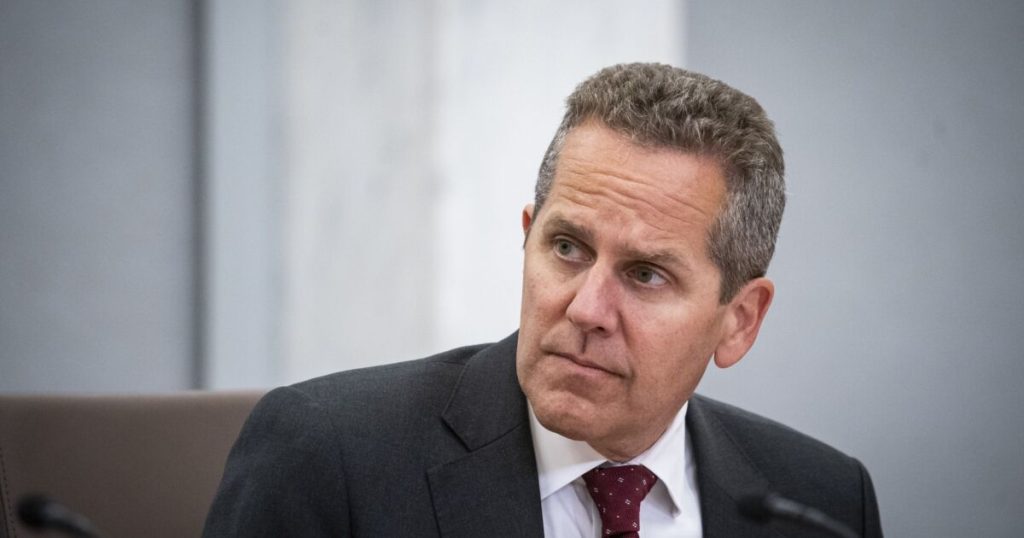- Key insight:Federal Reserve Governor Michael Barr said the short-term impact of AI-related job cuts will likely lead to long-term economic gains, as new technology may create new jobs with higher pay. He also said the central bank is working to bring inflation back to its 2% target but noted there is “some work to do.”
- Expert quote:”[You] may be beginning to see a little bit of that in employment data — not a lot, but a little bit of it in some sectors,” Barr said. “It might be an area to watch in the future.”
- What’s at stake: Federal Reserve Governor Michael Barr’s brief comment that there is “work to do” on inflation may signal a more hawkish stance on future short-term interest rate cuts.
Federal Reserve Governor Michael Barr expects artificial intelligence to cause disruptions in the workforce of some industries but is hopeful the technology will benefit communities and the economy in the long run.
Speaking at the Federal Reserve Bank of St. Louis Thursday, Barr said he understands concerns about how AI will affect the labor market, noting that “it’s an appropriate thing to worry about.”
Barr said that if AI tools are implemented rapidly by employers, they could make certain roles obsolete. “You could see significant dislocations in particular sectors,” he said, adding that a small degree of those changes may already be occurring.
“You may be beginning to see a little bit of that in employment data — not a lot, but a little bit of it in some sectors,” Barr said. “It might be an area to watch in the future.”
Barr, the former Fed vice chair for supervision, emphasized that he remains optimistic about how AI will affect communities, saying he believes it will ultimately help the economy grow.
“I think even if there are some short-term dislocations, what we’ve seen with the introduction of technologies in the past is that over the long term, new jobs are created and jobs that exist change to be more productive for the worker,” Barr said. “Workers get paid more, so it could increase real wages for people.”
He added that the economy will continue to expand if employers are “attentive to the concerns people have about dislocation, appropriate training, and making sure people are brought into the system and not left behind by it.”
Regarding the labor market, Barr said a “two-speed economy” is beginning to emerge.
“Wealthier households are doing quite well, but low-income households, many of them are struggling,” he said. “Some people are worried about if they lost their job whether they might get a job in the future, so we have to pay careful attention in making sure that the labor market is solid.”
On inflation, the other part of the Fed’s dual mandate, Barr said the central bank is working to
Barr also noted that Community Development Financial Institutions, or CDFIs, have expressed
“I do think CDFIs are worried about whether they’re going to continue to have the funding that they need to do the important work in their local communities,” Barr said. “I hear that all around the country, and I certainly understand that concern.”
President Donald Trump issued an executive order in March scaling back the CDFI program — which provides technical and financial assistance to help CDFIs grow — to its minimum level under federal law. In August, internal documents
“CDFIs have been so essential, really, over the last 30 years, in helping local communities get the credit they need to thrive,” Barr said.

